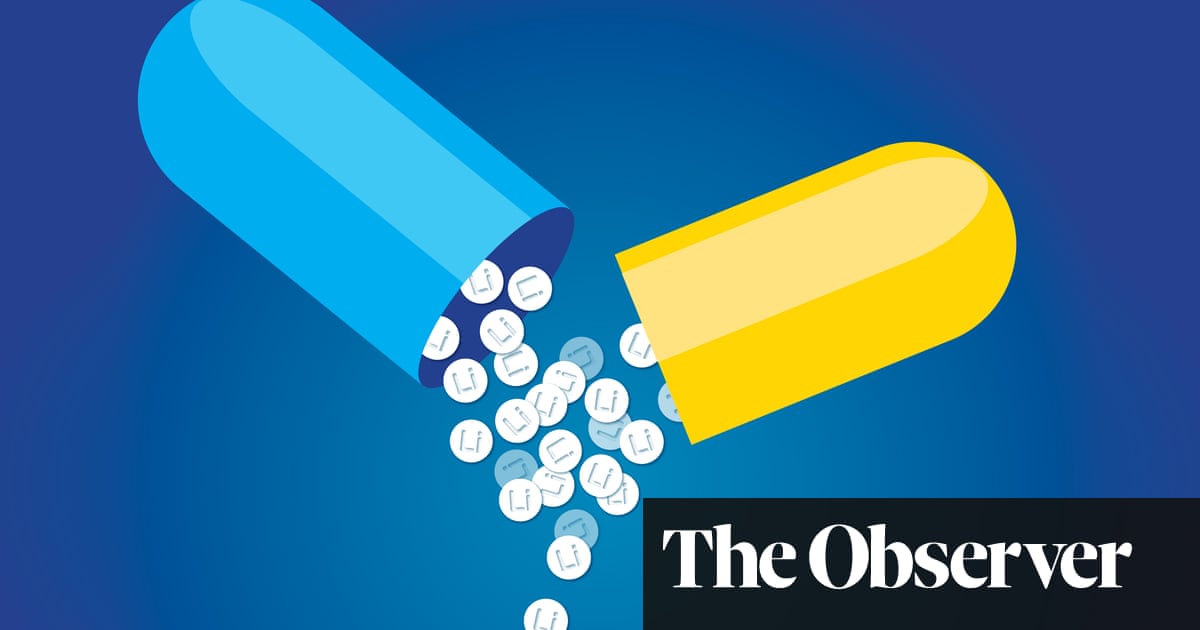Occupational stress is a trigger for Rebecca Wilde, a 32-year-old tech worker in Buckinghamshire. Four years ago, work pressures combined with family issues affected her sleep, leading to a severe manic episode. She was hospitalised for a month and a half, and diagnosed with type 1 bipolar disorder, also known as bipolar 1, a mood condition that can have devastating consequences if not managed well. Mania, and sometimes psychosis, is present in type 1.
Wilde was experiencing both: at one point, she thought she could talk to dogs. She was put on the antipsychotic drug olanzapine and another mood stabiliser, lithium. She has now been taking lithium alone for a year, and it has been transformative. “On the lithium, I definitely feel like me,” she says.
While Wilde was transitioning to lithium only, researchers were furiously debating the evidence around the drug. In 2023, the journal Bipolar Disorders published an editorial co-written by editor-in-chief Gin S Malhi, titled “Lithium first: not merely first line”. This asserted that lithium should be considered not only as one of several possible initial treatments for bipolar disorder, but as the first and foremost of these. Lithium “needs to be championed”, maintains Malhi, a visiting psychiatry professor at Oxford University.
This is not the only heated dispute among lithium researchers from the past couple of years. A 2024 critique led to professors trading words such as “pseudoscience” and “extraordinarily venomous”. Feuds such as these point to the high stakes over the declining popularity of lithium.
Medicinal lithium is remarkable. There is more evidence of lithium’s effectiveness in managing bipolar disorder than for any other medicine. As a naturally occurring ion, lithium can’t be patented. And unlike most medicines, it’s not metabolised by the body.
Malhi explains why this is significant: “With lithium, the body can be thought of simply as a bucket of water with input and output of fluid. Then, whatever lithium you add gives you a plasma level. It means we can accurately make changes with sensitivity around plasma levels and clinical response and tolerability.”



deleted by creator
thanks